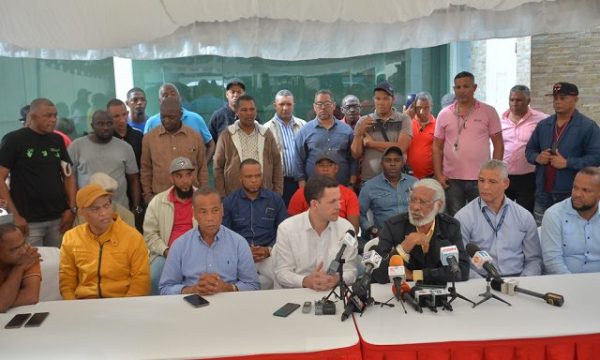
Syndicated transport kingpins in the past have been known to resort to vandalism to impose monopolistic rights for transport of goods and passengers in the Dominican Republic. President Luis Abinader apparently has decided to lure the transporters to his side with very lucrative deals. He appointed a former Fenatrado truck syndicate high executive, Rafael Arias to lead the National Transport and Transit Institute even when Arias’ former boss at Fenatrado is in jail accused of murder of competing truckers.
Now, Intrant has been awarding key bus routes to the country’s infamous syndicated transport businesspeople. Previously, the government-owned Omsa bus company served the main bus routes. The RD$15 fares benefited the poor. Likewise, at times of conflict with the syndicated transporters and their multi-fare paying taxis (conchos) and small buses, there was always the Omsa for people to get where they were going.
Omsa was plagued by corruption in the past government. There is a major corruption case regarding Omsa being heard in the judiciary. Yet, instead of strengthening the government bus company, the Abinader administration has decided to allot the bus routes under the public-private alliance scheme to the syndicated transport kingpins. The fares on the new bus corridors have been increased to RD$35.
Antonio Marte of Conatra, today a senator for Santiago Rodriguez for the Fuerza del Pueblo, was the first to be allotted a bus route – the Av. Núñez de Cáceres route. Alfredo Pulinario (Cambita) of Mochotran was next, getting the Av. Winston Churchill and the Av. Charles de Gaulle routes. The route concession is exclusive. Multi-fare paying taxis are banned as well as competing operators.
Nine buses were vandalized on day one of the start of the Av. Charles de Gaulle route on Monday, 28 March 2022. Juan Hubieres of Fenatrano protested Mochotran getting the route, saying that syndicate only had 20% of the drivers on the route. Hubieres has revealed that the transport syndicates are overpricing the buses they import under the public-private alliance and closed cooperatives model.
The government was prompt to negotiate. As reported, Transport Cabinet president Hugo Beras negotiated a deal. Hubieres would get the lucrative 27 de Febrero route. Fenatrano already operated its small blue buses on the 27 de Febrero Avenue. Hubieres was all smiles for the announcement by the Presidency.
Meanwhile, passengers now have to pay RD$35 to get a ride on the buses of the Abinader bus corridors, up from RD$15 in the past. Commuters complain the buses are wait to fill up and are not passing as frequently. The contracts signed with the syndicated bus operators have not been made public.
Meanwhile, a fourth out-spoken transport syndicate leader, William Figuereo of CNTU complained the government is allotting the public routes without a tender. He said when Intrant started in the past government, there had been talk of a tender for the routes. Now they are merely being allotted to benefit the past operator of the route.
Diario Libre says it has not been able to get an answer to the question of when the tenders were carried out to choose the beneficiaries of the routes, as mandated by Intrant Law 63-17. Article 315 of Law 63-17 establishes regarding “bids for operating licenses for public passenger transportation, that these ‘shall be carried out with operating companies, consortiums or any other associative regime of exploitation of the passenger transportation service that facilitates the process of reform and modernization of the public passenger transportation system or other applicable modality, to improve the economic, social and professional conditions of the operators of the service, and dignify the quality of the mobility system offered to the users’.”
Read more in Spanish:
Listin Diario
Presidencia
Hoy
Hoy
Diario Libre
Diario Libre
El Caribe
31 March 2022

